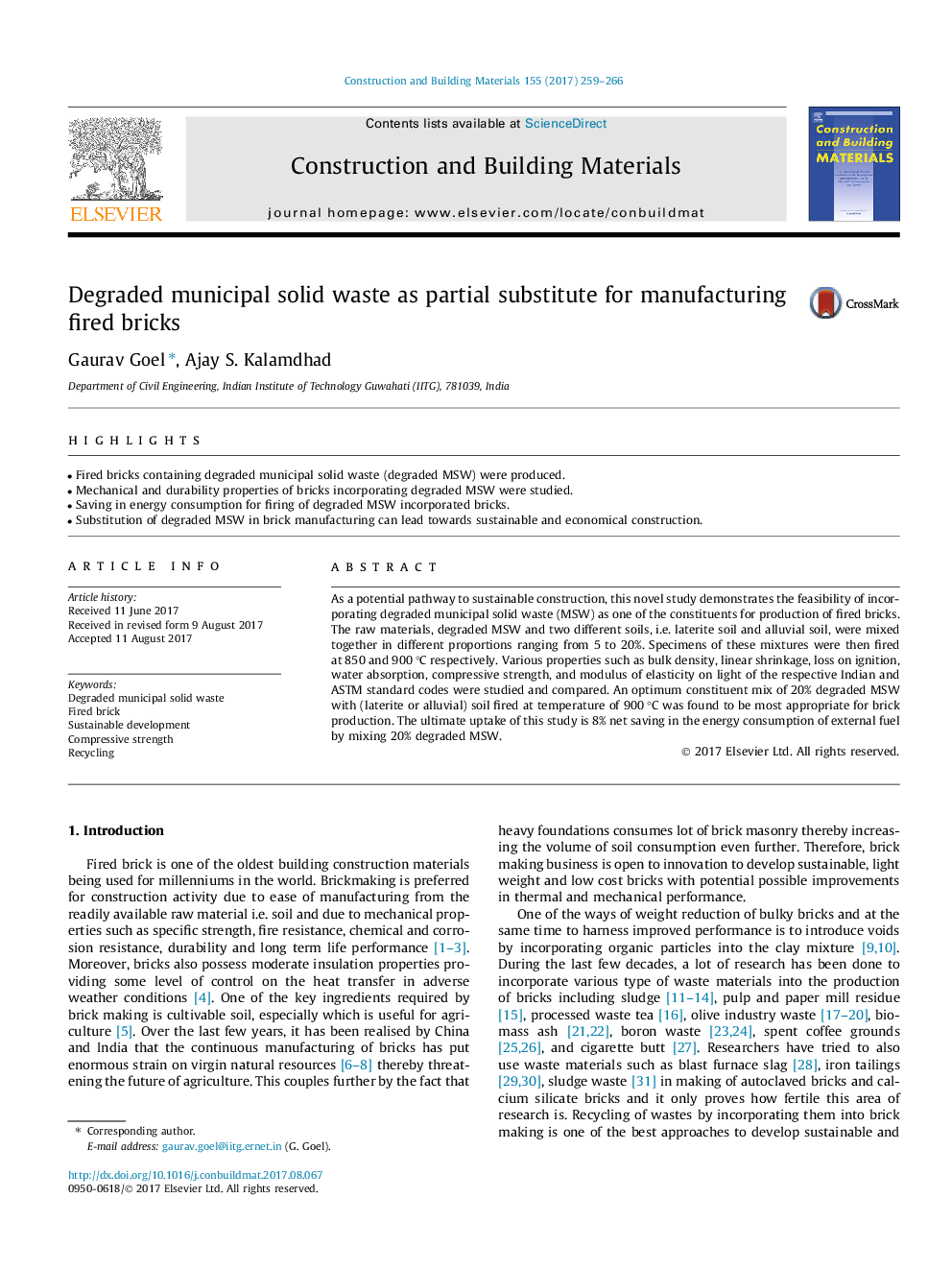| Article ID | Journal | Published Year | Pages | File Type |
|---|---|---|---|---|
| 4918076 | Construction and Building Materials | 2017 | 8 Pages |
Abstract
As a potential pathway to sustainable construction, this novel study demonstrates the feasibility of incorporating degraded municipal solid waste (MSW) as one of the constituents for production of fired bricks. The raw materials, degraded MSW and two different soils, i.e. laterite soil and alluvial soil, were mixed together in different proportions ranging from 5 to 20%. Specimens of these mixtures were then fired at 850 and 900 °C respectively. Various properties such as bulk density, linear shrinkage, loss on ignition, water absorption, compressive strength, and modulus of elasticity on light of the respective Indian and ASTM standard codes were studied and compared. An optimum constituent mix of 20% degraded MSW with (laterite or alluvial) soil fired at temperature of 900 °C was found to be most appropriate for brick production. The ultimate uptake of this study is 8% net saving in the energy consumption of external fuel by mixing 20% degraded MSW.
Related Topics
Physical Sciences and Engineering
Engineering
Civil and Structural Engineering
Authors
Gaurav Goel, Ajay S. Kalamdhad,
